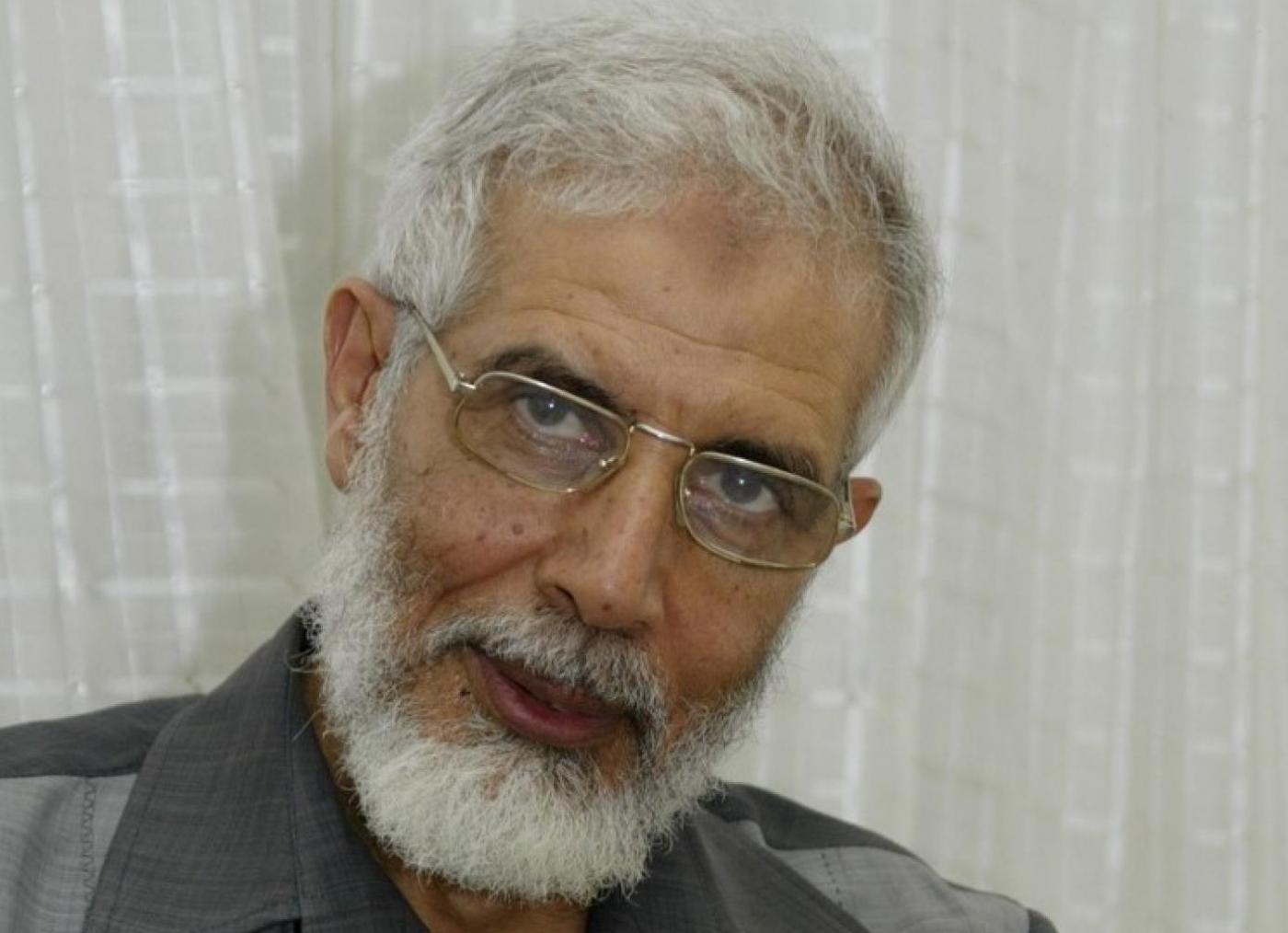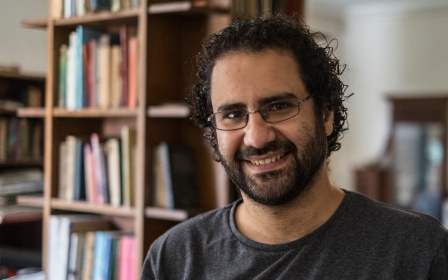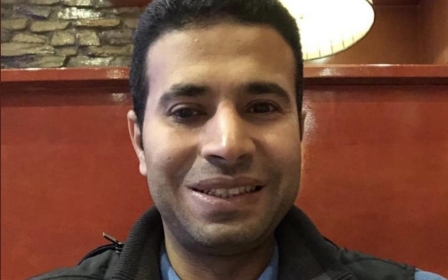Egypt: Detained Brotherhood leader decries prison conditions in rare court appearance

The former acting leader of Egypt's opposition group the Muslim Brotherhood criticised his detention conditions in a rare court appearance shared widely in an online video on Thursday.
Mahmoud Ezzat, the 77-year-old former Brotherhood leader, who is also a professor of epidemiology, was arrested in August last year after seven years of speculation about his whereabouts.
Last week, he was sentenced to 25 years in prison on charges of "espionage" with Hamas, the Palestinian movement that has de facto rule over the besieged Gaza Strip. This is on top of having already been sentenced to life in prison in April.
'The [prison] cell is only opened for seconds everyday to deliver my food'
- Mahmoud Ezzat
The Brotherhood, which has been Egypt's largest opposition movement for decades, has been outlawed by the government of President Abdel Fattah el-Sisi since 2014 after he led a coup against his predecessor Mohamed Morsi, who hailed from the group.
The group has denounced the court cases against Ezzat as "politically motivated".
New MEE newsletter: Jerusalem Dispatch
Sign up to get the latest insights and analysis on Israel-Palestine, alongside Turkey Unpacked and other MEE newsletters
In his latest court appearance shared in a leaked video, Ezzat complained to the judge about the circumstances of his detention, as he is held in a solitary confinement cell at the notorious Aqrab Prison.
He said that throughout the 16 months of his detention, "the cell is only opened for seconds every day to deliver my food" and that "some food is thrown to me from the door vent, without bothering to even open the cell's door to hand the food to me."
He added that he is not allowed to move outside his cell, or to "smell fresh air except within the walls of the cell".
"I have been blindfolded all the way from the prison to this court room today," he told the judge.
Ezzat added that, prior to the trial, he hadn't been able to read the indictment sheet or listen to the prosecution hearing, and that he hasn't met his lawyers or been able to know who they are.
"I haven't met lawyers, and haven't had a chance to tell them what I want to say so they would tell the court," he said in the video that went viral.
The short clip has triggered widespread condemnation by Egyptian and Arab human rights advocates and journalists.
Gamal Sultan, a journalist, wrote that the video is "enough to expose all the cheap lies promoted by the Egyptian media about the 'virtues' of prisons in the 'Happy Era.' What Ezzat said was a disgrace to the systems of justice, security and media in the country."
Siba Madwar, a news anchor, tweeted: "What sort of disgrace glorifies a regime that has kept a man of this age in solitary confinement for a year and a half, and glorifies this judge, who does not seem to be moved by his complaints or the misery of his conditions? Where did they get all this cruelty and who taught them all this brutality?"
Deaths in custody
Several Brotherhood leaders have died in custody in recent years, including the late president Mohamed Morsi and former MP Essam El-Erian. Rights groups have said their deaths were most likely due to medical negligence and poor conditions in jails.
Sisi ousted his democratically elected predecessor Morsi in July 2013. Since then, the former army general has led a crackdown on Brotherhood leaders and supporters, as well as on secular opposition groups that criticise his rule.
Human Rights Watch has estimated that more than 60,000 political prisoners have been languishing in jails since Sisi became president in 2014, while many others have been living in self-imposed exile fearing reprisals at home.
Sisi has repeatedly denied that the country has any political prisoners, and consistently justifies his crackdown as part of his "fight against terrorism".
Middle East Eye delivers independent and unrivalled coverage and analysis of the Middle East, North Africa and beyond. To learn more about republishing this content and the associated fees, please fill out this form. More about MEE can be found here.




